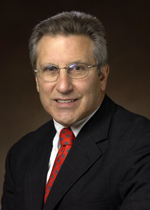Workers union Unite Here is none too pleased with Big Pharma, pushing back in July against the industry's funding of CME courses. Now the union is going after pharma's relationship with the American Heart Association (AHA), pointing to large sums handed to the organization by top drugmakers.
Pharma, medical device and health insurance companies doled out more than $15 million to the AHA during the 2013-2014 fiscal year, United Here said in a new report, with several drugmakers contributing more than $1 million each. Japanese drugmaker Daiichi Sankyo pitched in about $1.52 million, for example, and Pfizer ($PFE) forked over $3.28 million and change.
Some of the money went directly to AHA leaders, Unite Here analyst and report author Arthur Phillips told FiercePharma. The union delved into doc-payment data disclosed by drugmakers to tot up payments to AHA's board and officials.
 |
| Dr. Robert Eckel |
AHA bigwigs including Dr. Robert Eckel, a former AHA president, received sizable payments from pharma. Eckel said he worked as a consultant for Pfizer and Merck ($MRK) and several other pharma companies between 2008 and 2012, according to the 2013 AHA Guideline seen by Unite Here.
In 2014, Eckel collected nearly $33,000 in industry payments, with the majority as consulting fees from pharma companies. About $14,000 of that amount came from Sanofi ($SNY). Unite Here did not elaborate on Sanofi's payments to Eckel. But as the report points out, Eckel testified before the FDA on behalf of Sanofi's PCSK9-inhibitor Praluent, setting the stage for the drug's approval in July 2015.
Unite Here has a few ideas about how to address pharma's payments to the AHA. After a medical professional gets more than $1,000 from pharma companies, there should be a two-year waiting period before they assume a leadership role at the AHA. Each year, the AHA should publicly reveal the "precise contributions" it gets from pharma, Phillips said, further ensuring that everything stays on the straight-and-narrow.
The AHA has its own conflict-of-interest policies, but organization leaders--including those setting guidelines for cardiovascular drugs--can still receive "tens of thousands of dollars or more" from pharma companies, Phillips noted. "We think the AHA would do better and maintain its public confidence if it would prohibit those people from accepting contributions while in that position," he said.
- read Unite Here's report (PDF)
- here's their statement